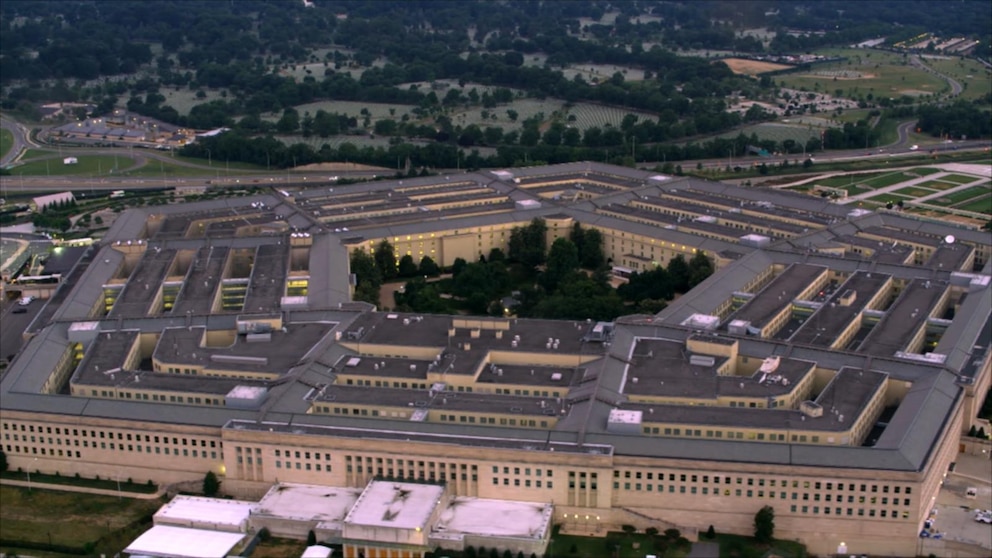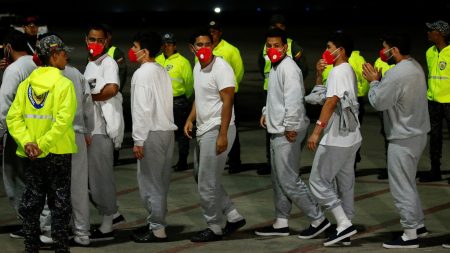The Big Story: Pentagon Announces Layoffs of 5,400 Workers
In a significant move that has sent shockwaves through the defense sector, the Pentagon has announced plans to lay off 5,400 workers next week. This decision comes as part of a broader effort to streamline operations, reduce costs, and adapt to the evolving geopolitical landscape. The layoffs, which are expected to impact both civilian and military personnel, have sparked concerns about the potential impact on national security and the lives of those affected. While the Pentagon has assured that the cuts are necessary to ensure long-term efficiency, critics argue that the move could weaken the nation’s defense capabilities at a time when global tensions are on the rise.
Israeli Prime Minister Vows "Revenge" After Hamas Hostage Release
In a separate but equally explosive development, Israeli Prime Minister Benjamin Netanyahu has vowed "revenge" following a recent hostage exchange with Hamas. The Israeli military revealed that one of the four bodies returned by Hamas did not include hostage Shiri Bibas, a 49-year-old Israeli woman who has been held captive for years. Netanyahu’s statement has been interpreted as a sign of escalating tensions between Israel and Hamas, with many fearing that the situation could spiral into further violence. The Prime Minister’s vow of revenge has drawn both support and criticism, with some hailing it as a necessary response to terrorism, while others warn that it could lead to a cycle of retaliation and destabilize the region.
The Humanitarian Crisis Deepens in the Middle East
The recent developments in the Middle East have further highlighted the escalating humanitarian crisis in the region. The exchange of bodies and hostages between Israel and Hamas has brought into sharp focus the dire conditions faced by civilians caught in the crossfire of the conflict. Shiri Bibas’s family has expressed their anguish and frustration, calling for urgent action to secure her release and ensure her safety. Meanwhile, humanitarian organizations have pleaded with both sides to prioritize the protection of civilians and avoid actions that could exacerbate the suffering of innocent people. The situation remains tense, with the international community urging restraint and diplomacy to prevent further escalation.
Global Reactions to the Pentagon Layoffs and Middle East Tensions
The Pentagon’s announcement of layoffs and Netanyahu’s vow of revenge have drawn reactions from around the world. Allies and adversaries alike are closely monitoring the developments, with some expressing concern about the potential consequences for global security. The layoffs have been particularly controversial, with many questioning the wisdom of reducing the defense workforce at a time when the world faces numerous threats, from rising powers to transnational terrorism. On the other hand, some have welcomed the move as a step towards modernizing the military and reallocating resources to more critical areas. As for the Middle East, the international community has renewed calls for a peaceful resolution to the Israeli-Palestinian conflict, emphasizing the need for dialogue and compromise.
The Broader Implications of the Pentagon Layoffs
The Pentagon’s decision to lay off 5,400 workers has far-reaching implications that extend beyond the immediate impact on those losing their jobs. The move is part of a broader strategy to restructure the military and adapt to the challenges of the 21st century, including the rise of China, the resurgence of Russia, and the growing threat of cyber warfare. While the layoffs may lead to short-term cost savings, there are concerns about the long-term effects on military readiness and capabilities. Experts have warned that reducing the workforce could undermine the Pentagon’s ability to respond effectively to future crises, particularly in light of the increasing complexity and unpredictability of global threats. Additionally, the layoffs could have a ripple effect on the defense industry, impacting contractors and suppliers who rely on government contracts.
A Call for Diplomacy in the Middle East
As tensions between Israel and Hamas continue to rise, the international community has issued a united call for diplomacy and restraint. The recent hostage exchange has underscored the urgent need for a negotiated settlement to the conflict, one that addresses the genuine concerns and grievances of both sides. While Netanyahu’s vow of revenge has been met with understanding from some quarters, many have cautioned against actions that could lead to further bloodshed and instability. The humanitarian toll of the conflict has already been devastating, with thousands of civilians caught in the crossfire and millions more affected by the resulting displacement and economic hardship. The international community has urged both sides to return to the negotiating table and work towards a peaceful resolution, emphasizing that there is no military solution to the conflict. Only through dialogue and compromise can a lasting and just peace be achieved.















